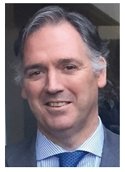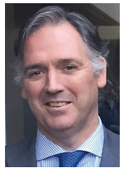“The ideal law firm is a global one”

 Urbaser’s Santiago Sainz de Baranda y Casado says his company’s preference is for law firms with an office in Spain as well as in the foreign jurisdictions in which it operates
Urbaser’s Santiago Sainz de Baranda y Casado says his company’s preference is for law firms with an office in Spain as well as in the foreign jurisdictions in which it operates
Using an external law firm adds value in many ways, especially in terms of the level of knowledge they can bring regarding specific issues, such as the environment, competition and intellectual property, says Santiago Sainz de Baranda y Casado, corporate legal director at environmental management company Urbaser in Madrid. He adds that external firms can also add value when it comes to issues related to the expansion of the business, such as acquisitions and tender processes.
“For us, the ideal law firm is a global one,” says Sainz de Baranda y Casado, who adds that, ideally, when it comes to matters outside of Spain, Urbaser wants a firm with an office in Spain as well as in the relevant jurisdiction. However, he adds that the company is also happy to deal with firms that have close relationships with other firms in foreign jurisdictions. “We also like Spanish firms with international alliances, as that allows us to have control through a trusted local firm, with a representative office in the target country,” he says.
M&A increasing
Urbaser has a number of preferred firms it works with on a regular basis. “Personally, I like the structure and the concept of the Spanish firm Ontier, for example, which has a global network of local offices that are incorporated into the organisation without losing their idiosyncrasy,” Sainz de Baranda y Casado says. “However, there are some firms we use frequently, such as Gómez-Acebo & Pombo, which we could call our family law firm, Hogan Lovells, DLA Piper, EY, KPMG, Dutilh, Clifford Chance, Cuatrecasas and Garrigues,” he adds.
Urbaser specialises in waste collection as well as the construction and operation of waste treatment and recycling facilities, with a presence in 21 countries in Europe, Asia, Africa and the Americas, employing around 40,000 people and serving around 50 million people. Urbaser’s Spanish parent company, Grupo ACS, was acquired by Chinese company CNTY in 2016, and this has led to an exponential increase in M&A operations as well as an increase in Urbaser’s participation in international bidding rounds, Sainz de Baranda y Casado says.
This expansion of Urbaser’s global presence has also led to a significant increase in workload for the company’s legal team, says Sainz de Baranda y Casado. “We select law firms based on the specific case at hand,” he adds. The company runs tenders in order to select the firms. “Obviously, we only allow the firms we are interested in to participate in the selection process, and prior experience carries a lot of weight, as well as the quality of their services, which will have generated a relationship of trust with them,” Sainz de Baranda y Casado explains.
Specialisation required
He adds that Urbaser always looks for a high degree of specialism in its external lawyers and in their team, especially as Sainz de Baranda y Casado views teamwork as tremendously important. He also says that there are occasions when, due to strategic needs or international issues, the company will select a firm, rather than an individual lawyer. But he adds that those selected are “always top-tier firms”.
Urbaser’s in-house legal team, which comprises sixteen staff – including two assistants, one paralegal, as well as in-house lawyers in the company’s international offices – provides global legal advice related to the company’s day-to-day operations, and also has significant influence on decision making, Sainz de Baranda Casado says.
However, the advantage of using external law firms is their specialisation, he adds, though he points out that it is also a way of outsourcing work of less value that has a less direct relationship to the business. “Work regarding joint ventures is also externalised, as a means of reducing the responsibility of the joint venture partners in relation to certain legal issues,” says Sainz de Baranda Casado. “And the only disadvantage could be the potential loss of control of the issue in question,” he adds. However, Sainz de Baranda y Casado says the company has “never had a bad experience of that kind”. He points out that any such negative experience would result in a loss of confidence and prevent the company from using the same firm again.
Santiago Sainz de Baranda y Casado, corporate legal director at environmental management company Urbaser












